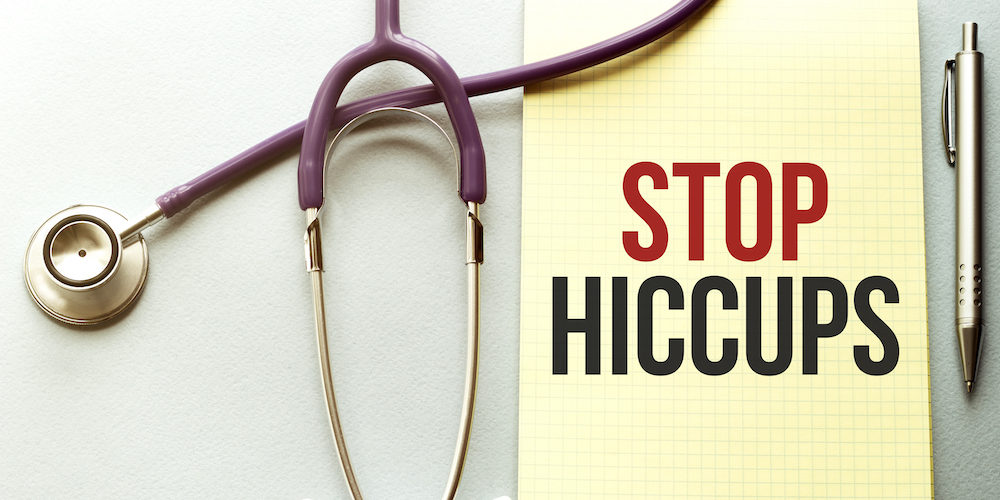H
iccups also known as “singultus” are sudden involuntary contractions of a muscle called “diaphragm”, that separates the chest from the belly. When this happens, you swallow air and your larynx (i.e. voice box) closes, leading to the “hic” sound.
In most cases, hiccups are benign and usually transient. Most get rid of hiccups within days. When hiccups persist for more than two days, they are called “persistent” and when it lasts for more than one month, it is called “intractable” hiccups. Hiccups lasting more than two days could be due to a number of underlying medical problems and should prompt a consultation with your doctor.
Common causes of Hiccups
-
-
- Excessive alcohol intake
- Swallowing air (for example, while chewing gum)
- Consumption of carbonated drinks such as soda
- Excessive eating causing your stomach to be distended
- Moving from a hot environment to a cold environment or vice versa
- Tobacco use
-
In unusual situations, a hiccup may be due to irritation or damage of a nerve in the neck or diaphragm and may also be due to an organic disease such as acid reflux, a tumor or a disease of the brain such as meningitis or encephalitis. You should seek the advice of your own physician if your hiccups does not resolve within two days.
What can I do to get rid of hiccups?
-
-
- Breathe into a paper bag
- Hold your breath for several seconds
- Sip cold water or swallow a teaspoon of sugar
- Pull your knees up to your chest and lean forward
- Breathe out against your closed mouth and nose (like in an airplane to pop your ears)
- Drink a glass of water through a paper towel
- Avoid excessive alcohol consumption
- Avoid excessive eating
-
Should I see a doctor to get rid of hiccups?
We recommend seeing your doctor if your hiccups last longer than two days. Your doctor may want to order some tests depending on your symptoms.
How are hiccups treated?
There are prescription medications that have proven to be effective if the above self-help methods fail. Some people may need surgery in rare situations.
References
Viera, A.J & Sullivan, S.A (2001). Remedies for Prolonged Hiccups. Am Fam Physician. 63 (9), 1684-1686. Retrieved from https://www.aafp.org/afp/2001/0501/p1684.html.
Lembo, A.J (2020). Hiccups. Retrieved from https://www.uptodate.com/contents/hiccups


